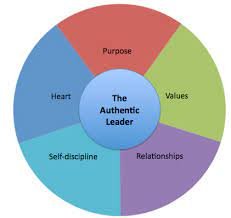In the preceding blogs of this series, we explored authenticity and its characteristics. This article will focus on ways we can be more authentic.
Leadership is a canvas for self-expression, and attempting to replicate someone else’s style will likely lead to failure. Employees seek guidance from leaders who invest time in crafting their unique approach, those who are honest and unwavering in their message. Fyodor Dostoyevsky wisely noted, “To go wrong in one’s own way is better than to go right in someone else’s.” People yearn to be led by individuals who share an honest message deeply rooted in personal conviction, not borrowed words that lack a genuine connection.
Here are some practical steps you can take to cultivate greater authenticity:
1. Know your values. Many of our woes come from not knowing ourselves, our abilities, fragilities, and virtues. We walk through life as strangers to ourselves, and that can cause distress in our authenticity and leadership. What are the top 3-5 beliefs that are important to you? Some may not know the answer- is it love, money, status, or relationships? We cannot align our behaviors with our values if we do not know them. Knowing our values helps us make better decisions. For example, if we value career goals, when we become a parent, we will know that we will want to make room for work because we will deliver our best selves to all that we do. Sharing our values is sharing our truth. Authenticity is intrinsically linked to your values and core beliefs, even if your behavior adapts to changing circumstances.
2. Know your purpose and align it with the organization. Knowing what you are meant to do in this world is vital for fulfillment, so if we are working for an organization that does not represent who we are and what we stand for, it can be stifling. But, when we can align any part of our purpose to the organizations, we can live more genuinely by being ourselves and having our values shine through in all places.
3. Express yourself as a trait, not a role. Often, we equate our identity with our job titles; if we do marketing for a living, that is how we portray ourselves, but it does not capture all we are. Maybe we are a learner and conveyors of ideas so there are a lot of roles we could have, like a facilitator for people to mutually explore profoundly impactful ideas, or a professional speaker, or a teacher, or a team leader, or simply an optimist. Authenticity is the expression of traits you have that can be flexed in different places rather than confined to specific roles.
4. Connect to your past. Authenticity can find its roots in your origins. Leaders who maintain a connection between their past experiences and their current selves are more often effective in building and maintaining relationships because they are not worried about hiding aspects of themselves. Authentic leaders remain focused on where they are going but never lose sight of where they have come from. Reflect on how your past has shaped you, and identify the common threads that have woven through your life.
5. Build a foundation of self-knowledge. We can learn about ourselves in many ways, but the best approach is to solicit honest feedback—perhaps a 360-degree review—from coworkers and follow it up with coaching so we learn more about ourselves and how other people see us, and then we can see if the two views are compatible. Combining personal and professional histories can unveil common themes from our upbringing and work experiences that have shaped our authenticity. Spend time in introspection, understand your preferences, and explore how they have evolved over time. This self-knowledge serves as a strong foundation for authentic leadership.
Authenticity in leadership is a potent force for engendering trust and nurturing meaningful relationships. To further enhance your authenticity, delve deep into your purpose and values, self-reflect, and express yourself through inherent straight rather than predefined roles.
Quote of the day: “Know yourself, and you will win all battles.” -Lao Tzu, Chinese philosopher
Q: How can we become a more authentic leader? Comment and share with us; we would love to hear!
The next blog in this series 4/4 will focus on dispelling myths of authenticity.
As a leadership development and executive coach, I work with leaders to explore what authentic leadership means to them and develop their style, contact me to explore this topic further.
Which components would you include?

